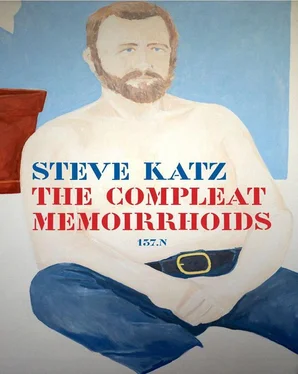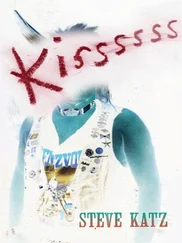I didn’t follow the instructions, just brewed the tea as strong as it would go. The ephedra grabbed me like a slingshot and snapped me into the stratosphere. I whizzed around for two days. Then I crashed. It took my breath, chopped my legs away. I could barely shuffle up the hill from my office to the classroom. I leaned heavily on the table. I tried to listen to the students. I mumbled back at the students. I should have gone to the hospital right then; instead, I went to California where I had a reading scheduled at Chapman University in Orange County.
From the window of my room in the Doubletree Hotel I could see the Crystal Cathedral. It was over yonder, across the big empty acres of parking lots. I had to go there. I knew if I went slowly, I could get there. It was kitsch for Christ. I had to see it before I died. I trudged across the exotic vacancy, through the big emptiness. Perhaps I would die right there in the Crystal Cathedral — a stupefying option for my fading consciousness. The Museum of Money was housed on the ground level. This was a good place to die. Every time I stopped, like on a bench in the outdoor shopping mall near the hotel, I had the thought: “Is it here, on this bench, in front of this Jamba Juice, where I’m going to give up my ghost?” I might have conked out at the reading, at the podium. But I didn’t. I read every word. That could have been a memorable performance.
I had planned to visit Larry McCaffery in Borrego Springs, and I didn’t disappoint. The rental Toyota Echo got there by itself. Larry took me in his four-wheeler into the canyons of the desert he was learning to love. I was touched by how much he wanted to show it to me. He tried to get me to hike. I could hardly crawl. “Larry almost died in there once,” Sinda said. She described an all out search and then finding him drunk and lost up one of the desert arroyos, sprawled out and babbling in the rocks.
As I drove back to LAX, I could easily have steered into the next world. I stopped at a shopping mall, organic farmer’s market, and hype mill. I sat down on a bench in my fading consciousness, and said weakly into the flow of passing polyester: “Critics of American Literature! I’m almost posthumous. You can discover my works now. As Ray Federman might say, ‘I’m about to change tense.’” I don’t know how I found the rental car return. I died every time I stopped to catch a breath and wait for consciousness to return. Life had become small, inch by inch. The corridors of perception were very narrow. Every breath was a big purchase. I don’t remember how I found my plane seat. Ray met me at DIA, and we went right to a Chinese Restaurant. Just being in my home port made me feel a little better. I could still handle the chopsticks. I told Ray the story of my long wheeze through Southern California. He asked me why I didn’t see a doctor. I explained that I couldn’t handle a crisis in a freeway environment, would enjoy it much more at home. I told him I’d call my doctor in the morning. I might never leave this bed, I thought, as I crawled under my covers to try to sleep.
In the morning I discovered I was slightly alive, enough to creep to the phone. My doctor was on vacation. The doc who was taking his calls told me to get to the emergency room immediately. “Emergency room!?” “Yes. As immediately as possible. Sooner.” “Okay.” Wow. Emergency room. It’s an emergency. That was exciting. If I’d only known. I might have handled myself differently.
DISPATCH FROM A WATER TOWER
The Turks marched through the street by my hotel in demonstration against the Cypriot Greeks. I climbed to the roof to watch the parade. Haja Sofia rose like a balloon festival in the distance out of the bramble of laundry lines, antennas, and water towers. The parade was a fierce spectacle of Nineteenth Century Ottoman costume and weaponry. Brigades flowed by with an intrepid three-step — three steps with the left leg, pivoting on the right leg, then three steps with the right leg. Their forward movement was slow and menacing. Their advance was inevitable. The marching music that rang down the narrow street was also slow, minor-keyed, anti-melodic, full of menace. It looked and sounded like a reminder of the cruelties of empire. You didn’t want to be caught in this any more than in a flow of lava.
I don’t know if I heard her first, or felt the waves her belly was making, but I turned from the street and saw a woman on the roof behind me. This was more than just a woman on a roof, but a belly-dancing beauty in sequined halter and harem pants. Her finger cymbals flashed in the sun. I suddenly was in a movie, anything from James Bond to a Bob Hope / Bing Crosby road movie. This couldn’t be happening to me. I would have to be taller, slimmer, more handsome. I totally forgot about the demonstration in the street. The woman beckoned to me while she danced to the martial music. She seemed to be imploring me to leap the eight-foot gap between rooftops, to come over and enjoy the pleasures her dancing promised.
I looked around. I could feel in my loins every wave of her hips and belly. I’d miss the leap, that much I knew. I’d fall to my death. Die for beauty. Die for lust. I climbed the ladder to the rim of my hotel water tower, thinking I might go the distance better with a downward arc. The tower was a cylinder, open at the top, water reflecting the grey-blue Istanbul sky. I moved carefully around the rim of the water tank, towards my dancing succubus. It was slippery up there. Lust grinned across my face. In the streets the Turkish nation was marching towards a virtual war. Suddenly four men appeared on the roof and surrounded the woman. Two were brandishing pistols. The other two grabbed her roughly and hustled her back into the building. She didn’t look back at me. I vowed never again to endanger my life for a woman. The other two men came to the edge of their roof and waved their fingers at me in warning, their guns at their sides. I teetered for a moment at the rim, my loins vacant.
If any of you ever wonder what has become of me, I have to tell you that I slipped off the rim, fell into the water, and struggled for hours to climb out. The walls of the tank are too slippery to grip. My strength petered out, my voice failed. I floated on my back late into the night, and then I was gone, like I dissolved into the acids of lust. I was a fringe victim of Turkish/Greek hostilities. That was how frivolous lust caused me to disappear forever from my own adventures, from my family, from all my friends.
A casual look at Old Dresden makes me speculate that everything combustible has been furnaced away, leaving a city of structured ash. Stone, arches, spires, the low sky are all spectral and grey. The old city seems to anticipate the correct wind, a precise gust that will spirit it all into the past. I am the skulking tourist, a phantom in my ruse of research. I’m here to visit the Gemaldegalerie Alte Meister, to look at Antonello da Messina’s Saint Sebastian , for my novel, Antonello’s Lion . This is to be the apogee of my investigation of Antonello’s work. From reproductions I know the painting to be the most amazing masterpiece of all Antonello’s masterpieces, and I anticipate the pleasure, the thrill of seeing it. I can hardly bear being told that it isn’t available for viewing. It’s in restoration. I’ve come all the way to Dresden. I feel like I’ve been stood up. I was able to convince people at Italian museums to let me see works in restoration. Even The Met in New York pulled out the Antonello in storage for me to look at. No amount of pleading can penetrate the Saxon will to regulations. I leave the museum and step onto the grey phantasmagoria of Theater-platz. The old city appears in its sad history as a phantasm, an ephemeral breath of place, a fading poem, and the people move around like Marianne Moore’s real toads in an imaginary garden.
Читать дальше












